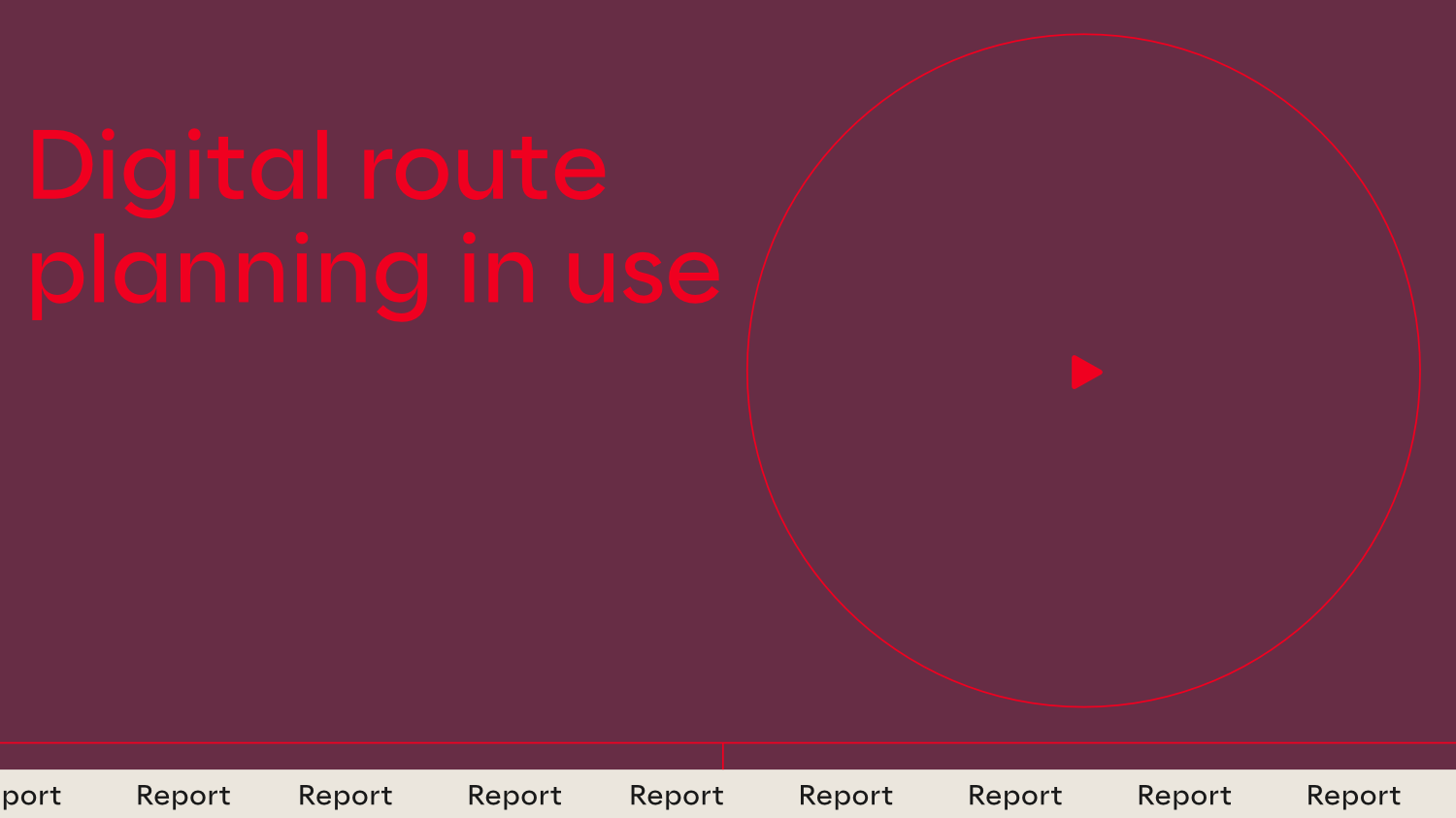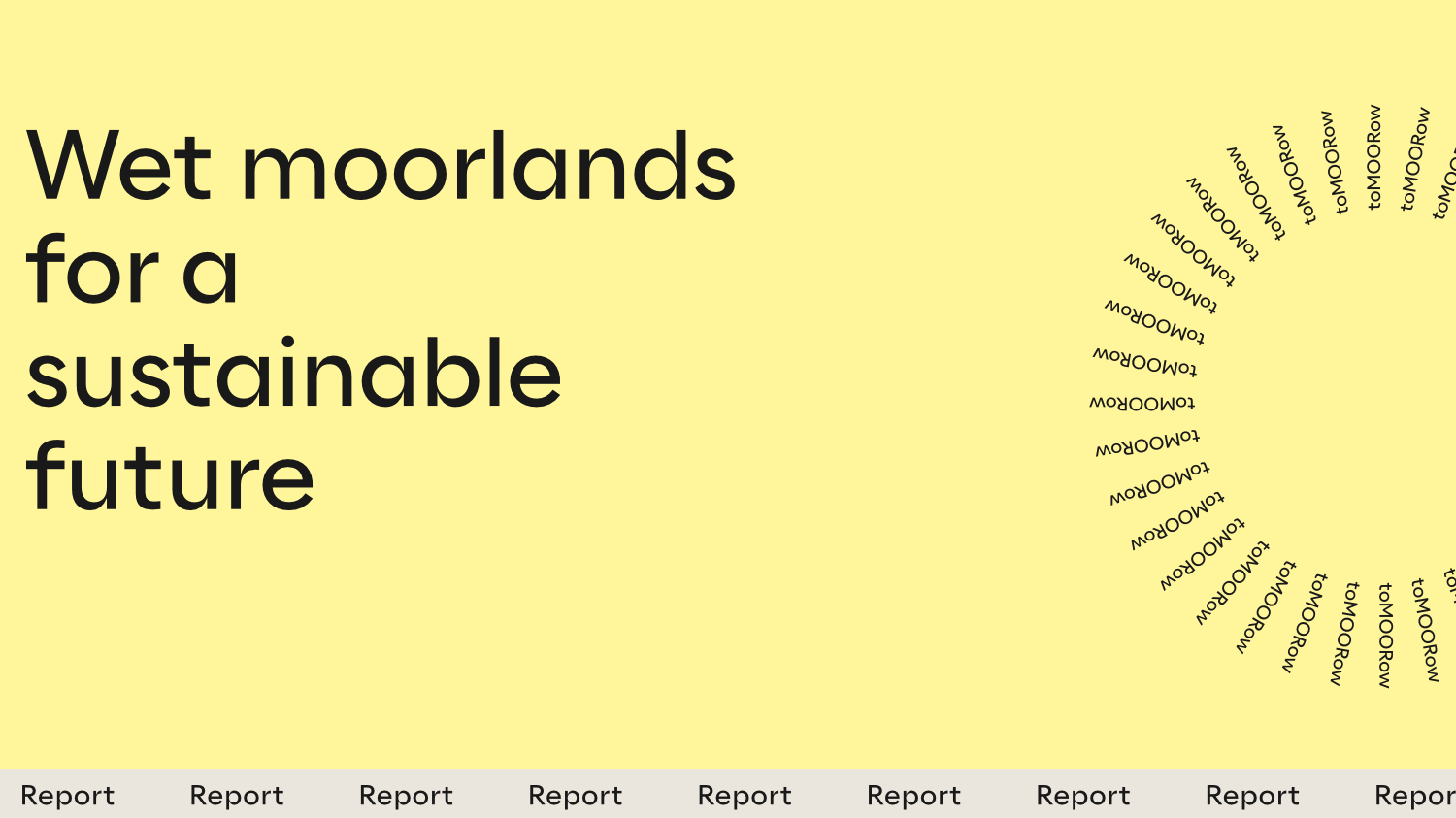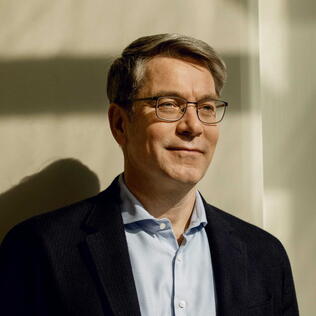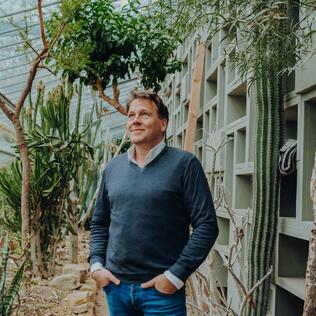CO2 reduction: Full speed in reverse

When it comes to reducing CO₂e, the Otto Group has set itself an ambitious target: The Group wants to be climate-neutral in all core processes by the year 2030. Joining forces will make this possible.
The Otto Group has been taking climate protection seriously for many years. Because the warning signs cannot be denied. The latest report by the Intergovernmental Panel on Climate Change and the dramatic appeals made at the UN Climate Change Conference in Glasgow 2021 make it unmistakably clear that we – government, society, business, and each and every individual – have no more time to lose in combating global warming. The Otto Group recognized this challenge early on. The first internal company projects to protect the environment and climate were launched back in the 1990s. This was followed in 2006 by the first Group-wide climate protection strategy with the goal of cutting CO₂ emissions in half without offsetting at the Group’s locations, in procurement and distribution transports, and in the area of employee mobility by the end of 2020. This target has been exceeded, and a new and ambitious one has now been set: By 2030, the entire Otto Group is to become climate-neutral in its core processes – in other words, in all of the activities over which the Otto Group can have a tangible influence.
Top priority: avoid and reduce
This will require a great deal of concerted effort. One of the most important factors in reducing emissions harmful to the climate is logistics, i.e. the procurement of goods. OTTO’s approach is exemplary for all Group companies: Instead of using airplanes, licensed and in-house goods are increasingly being transported by sea or rail. This has enabled OTTO to cut in half its share of air freight – particularly harmful to the climate – since 2012 and lower CO₂ emissions in logistics by around 68 percent on a revenue-adjusted basis. This is but one of many measures. Another is the systematic move to green electricity. By 2025, all locations – such as the Otto Group Campus in Hamburg – will be running on high-quality certified electricity from sustainable sources; photovoltaics and solar panels will supplement the energy mix. Where possible, business trips will be scaled back in the future, as the shift to virtual appointments, accelerated by the COVID-19 pandemic, has created other opportunities for interaction.
In addition, we are focusing on the entire value chain and are currently developing a science-based climate target in order to align our climate protection strategy fully with the 1.5° target of the Paris Climate Agreement. Our goals to reduce greenhouse gas emissions by 40 percent by 2025 compared to 2018 and climate neutrality by 2030 will be taken into account in the drafting process and incorporated accordingly in the future SBT.
More e-mobility
A lot of harmful emissions can also be avoided in the delivery of goods over the “last mile”. Hermes is making great strides in this area. “Hermes – WE DO!" was launched already back in 2010. This climate and environmental protection program, unique in the industry, bundles the efficient use of resources across all parts of the company, including intelligent route planning and the purchase of efficient vehicles. In addition, there is also the ambitious “Urban blue” strategy: In the centers of 80 major German cities, deliveries are to be made completely emission-free by 2025 by using electric vehicles and cargo bikes. In Berlin alone, this will mean 50 fewer diesel-powered delivery vans on the roads. And OTTO and Bonprix are systematically reducing emissions in their parcel delivery operations as well.
Sensible offsetting
Offsetting is seen as a meaningful complementary instrument for climate protection whenever technological solutions are currently unavailable or economically unfeasible. With our partner, the non-profit gGmbH Atmosfair, we intentionally promote high-quality climate protection projects around the world. In Rwanda, for example, efficient stoves are being produced for use by the local population. In Nepal, Atmosfair and its partners are building modern biogas plants, thereby reducing deforestation in the Himalayan forest. And in Burkina Faso, solar-powered treatment plants are providing clean drinking water. What all these projects have in common is that they sustainably and verifiably lower CO₂e – which is continuously being monitored by an advisory board of independent NGO representatives.
Wet moorlands as a climate savior
The rewetting of drained moorlands is an important component of climate protection. This is because they store more carbon than any other ecosystem in the world. Together with OTTO, Bonprix, Hermes Germany, the Witt Group and Systain, the Otto Group is therefore supporting the “toMOORow” wetlands protection project for the rewetting of German and European moorland areas over a period of five years in order to demonstrate specific solutions for protecting the climate and nature. And also to send a signal of how effective climate protection can be achieved right on our own doorstep.
The toMOORow initiative harnesses the capacity of wet moorlands to store carbon on a lasting basis: While wetlands occupy only three percent of the world’s land area, they contain twice more carbon in their peat – 500 gigatons – than the total biomass of all the world’s forests. This carbon is retained in the peat in intact and rewetted moorlands but is released in drained moorlands. Drained moorlands consequently generate very high emissions: By releasing two gigatons of CO₂ per year, they are responsible for almost five percent of global man-made CO₂ emissions. At the same time, intact wetlands provide unique habitats for plant and animal species and thus contribute to maintaining biodiversity. Prof. Dr. Michael Otto sums up the purpose of toMOORow succinctly: “With our toMOORow initiative, we are activating market forces for environmental protection and nature conservation and at the same time calling for suitable framework conditions so that companies can support wetland protection to benefit the bioeconomy and the circular economy.”







